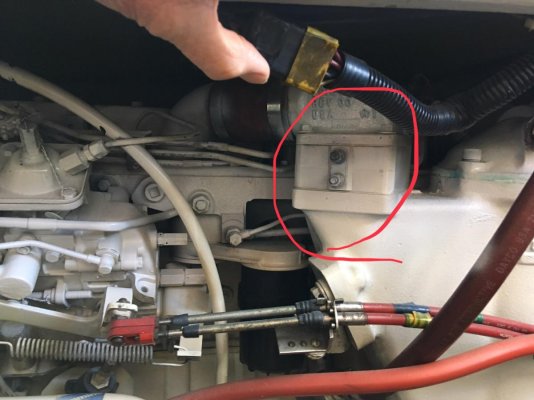Hi,
First time posting. Have just purchased a fly bridge cruiser with 2 Cummins 6bta’s. This site was invaluable getting everyone’s options on the engines prior to buying the boat.
The starboard engine low volt light/alarm sometimes comes on after starting and remains on for up to 20 seconds. The voltage output on the gauge appears low and jumps up when the light/alarm stops. We have checked the battery voltage and immediately after start with a multimeter and it would appear that the alternator IS pumping out sufficient power. At this stage it would appear to be a false indication. Any ideas?
First time posting. Have just purchased a fly bridge cruiser with 2 Cummins 6bta’s. This site was invaluable getting everyone’s options on the engines prior to buying the boat.
The starboard engine low volt light/alarm sometimes comes on after starting and remains on for up to 20 seconds. The voltage output on the gauge appears low and jumps up when the light/alarm stops. We have checked the battery voltage and immediately after start with a multimeter and it would appear that the alternator IS pumping out sufficient power. At this stage it would appear to be a false indication. Any ideas?


